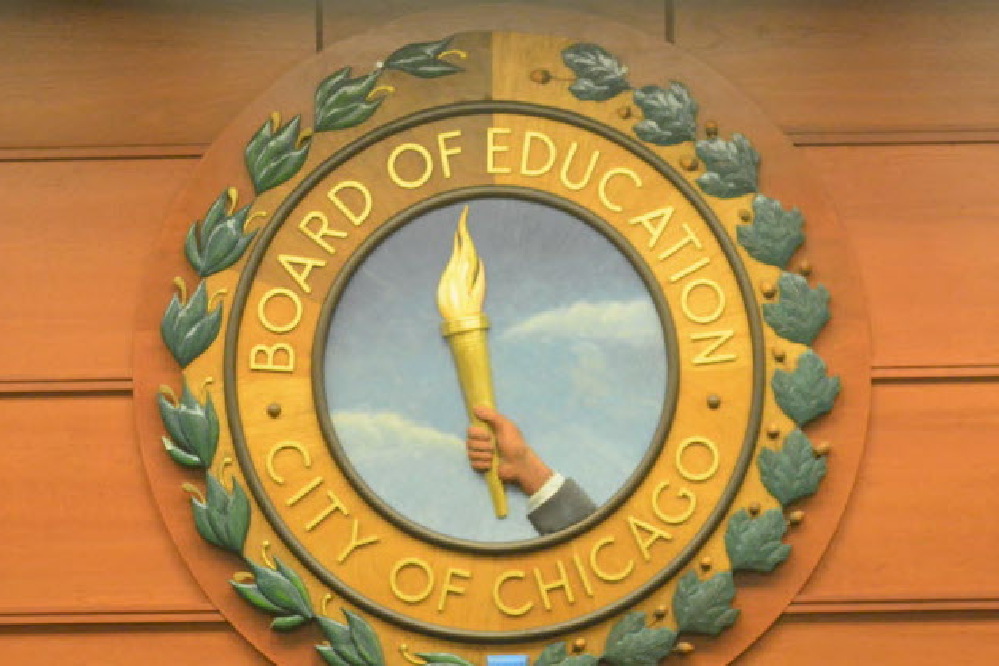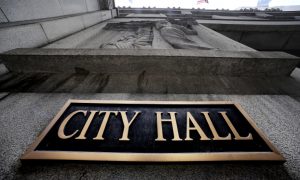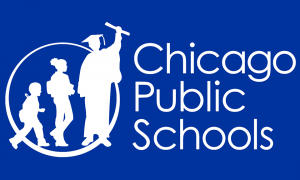The Chicago Public Schools are staring down the barrel of impossible choices with its cash reserves depleted, the Springfield budget stalemate dragging on and three weeks to go before a $634 million teacher pension payment is due.
Although the pension payment was built into a school budget balanced by an accounting sleight of hand, CPS is now facing a liquidity crisis that would make the payment difficult to make.
When the CPS bond rating dropped to junk status, the district was forced to renegotiate $220 million in outstanding swap agreements and pay penalties and higher interest rates on a massive refinancing.
That made a cash crunch that was bad enough — with a $1.1 billion budget shortfall — infinitely worse.
“How they meet payroll and make the pension payment at the same time is the magic question. That’s what they’re trying to figure out,” said a mayoral confidant, who asked not to be named.
Civic Federation President Laurence Msall said CPS has only three options, all of them lousy.
- Cut the budget enough to make the full pension payment, even if that means layoffs and program cuts.
- Miss a pension payment required by state law for the first time in history and risk a union lawsuit and another bond rating drop that could deprive the school system of its ability to borrow money.
- Or seek an emergency fix from the Illinois General Assembly — even as the broader power struggle between Republican Gov. Bruce Rauner and Democratic legislative leaders drags on — including a wildly unpopular request to lift the property tax cap so CPS can help itself./li>
“If the stalemate isn’t resolved and CPS doesn’t have the liquidity to make the pension contribution, they will be faced either with enormous cuts in staffing and changes to school budgets or the possibility of violating the law and not making the contribution,” Msall said.
“That would be uncharted territory. Unlike police and fire pension funds, the teachers pension fund does not have the ability to intercept state school aid if a pension payment is missed.”
Msall said CPS could make a partial payment but that would likely trigger an adverse reaction from Wall Street. The system could also try and borrow enough money to make a full payment, but the “enormity” of the financial crisis and the uncertainty of help from Springfield could make borrowing difficult or cost-prohibitive, he said.
Illinois House Majority Leader Barbara Flynn Currie, D-Chicago, underscored the point about the Springfield uncertainty.
Mayor Rahm Emanuel has long demanded an end to the “dual taxation” that forces Chicago taxpayers to pay for the pensions of city teachers and for teachers outside the city.
But until the stalemate over Rauner’s demand for pro-business, anti-union reforms is resolved, Flynn Currie said the mayor is on his own.
“It’s a terrible, terrible problem. But, I don’t see light at the end of the tunnel if the end of the tunnel is Springfield. I don’t see the General Assembly saying, ‘Open Sesame, Chicago. You can have more state aid,’ ” Flynn Currie said.
“We passed a bill to address the police and fire pension problem and it didn’t get any Republican votes. The governor wouldn’t sign it. Should the Legislature send him a [teacher pension] bill, would he sign it? I don’t think he would.”
The governor’s office did not respond to questions about the impending teacher pension payment or what, if anything, Rauner was prepared to do to help Chicago if the larger budget stalemate is not resolved by June 30.
Emanuel met privately last week with Rauner, who has repeatedly raised the possibility of CPS declaring bankruptcy. The mayor’s office refused to say what the two old friends and former business associates discussed.
CPS Chief Financial Officer Ginger Ostro did not return repeated phone calls. District spokesman Bill McCaffrey declined to answer questions about CPS’ finances.
“The district has never missed a pension payment. Nobody thinks it’s a good idea to start doing that. There are consequences to that. The goal is to figure out a way to make that payment,” said another Emanuel confidant.
“Maybe they can recalibrate the state education formula to recognize districts with high concentrations of poor students. There’s also no education budget yet for the entire state,” the second confidant added. “At some point, there will be a breaking point. Those schools need to know what their budgets are. Hopefully in the next couple of weeks, the pressure will start to mount” outside Chicago.
Whether the heat gets turned up outside Chicago, one thing is certain: a Chicago Teachers Union that went on strike in 2012 and has threatened to walk out again this year expects the $634 million pension payment to be made on time.
“There is no option. The Illinois Supreme Court said these are vested benefits. They must make the payment. Under the Illinois Constitution they must honor the law,” said CTU spokeswoman Stephanie Gadlin.
“The larger question is what will they do after they make the payment? CPS is broke on purpose. Will they run to Springfield and ask for a state take over of their finances so they can impose their will on the district? That won’t be good for educators, administrators or the students.”
In dropping the CPS pension crisis in Springfield’s lap, Emanuel has pointed to a series of “pension holidays” authorized during the 22-year reign of his predecessor and political mentor, former Mayor Richard M. Daley.
Emanuel has noted that, between 1995 and 2004, CPS made no payments at all to the teachers pension fund and made reduced payments from 2009 until he took office.
“I’m not laying this at Springfield’s doorstep, but you could read it that way,” the mayor told the Civic Federation last month.
Ald. Will Burns (4th), is a former state representative now chairing the City Council’s Education Committee.
“We’ve got [three weeks] to go to come up with a comprehensive solution. If this was June 29, this could be a very difficult conversation. But I’ve seen things move very quickly when the leaders come to an agreement,” Burns said.
“The preference would be to come up with a comprehensive solution. But if push comes to shove, CPS will figure out a way to make the payment. My understanding is it’s in the budget. The resources are there.”
State Rep. William Davis, D-Hazel Crest, chairman of the House Appropriations Committee on Elementary and Secondary Education, predicted that CPS would, at the very least, make a partial payment and continue to work with the General Assembly on a long-term pension fix that includes new revenue.
“Maybe they can afford half the payment,” he said.
Source: Chicago SunTimes

















































































































































































































































![[Video] Chicago Police Officers Caught On Video Telling Two Black Men "We Kill Mother F**kers"](https://earhustle411.com/wp-content/uploads/2018/07/evil-cop-3-300x180.jpg)
![[Video] Chicago Police Officers Caught On Video Telling Two Black Men "We Kill Mother F**kers"](https://earhustle411.com/wp-content/uploads/2018/07/evil-cop-3-80x80.jpg)












![[Video] White Woman Calls The Cops On Black Real Estate Investor, Cops Threaten To Arrest Her For Harassing Him](https://earhustle411.com/wp-content/uploads/2018/05/nosy-neighbor-300x180.png)
![[Video] White Woman Calls The Cops On Black Real Estate Investor, Cops Threaten To Arrest Her For Harassing Him](https://earhustle411.com/wp-content/uploads/2018/05/nosy-neighbor-80x80.png)


![White Scientist Says The Black Community Is Being Targeted By The Medical System, They Are Deliberatly Being Poisoned [Video]](https://earhustle411.com/wp-content/uploads/2016/05/mike-adams-300x180.jpg)
![White Scientist Says The Black Community Is Being Targeted By The Medical System, They Are Deliberatly Being Poisoned [Video]](https://earhustle411.com/wp-content/uploads/2016/05/mike-adams-80x80.jpg)








![Teenage Girl Shot In Her Stomach Three Times But Took Time To Post To Facebook [ Video]](https://earhustle411.com/wp-content/uploads/2016/02/Gangster-chick-300x180.jpg)
![Teenage Girl Shot In Her Stomach Three Times But Took Time To Post To Facebook [ Video]](https://earhustle411.com/wp-content/uploads/2016/02/Gangster-chick-80x80.jpg)







